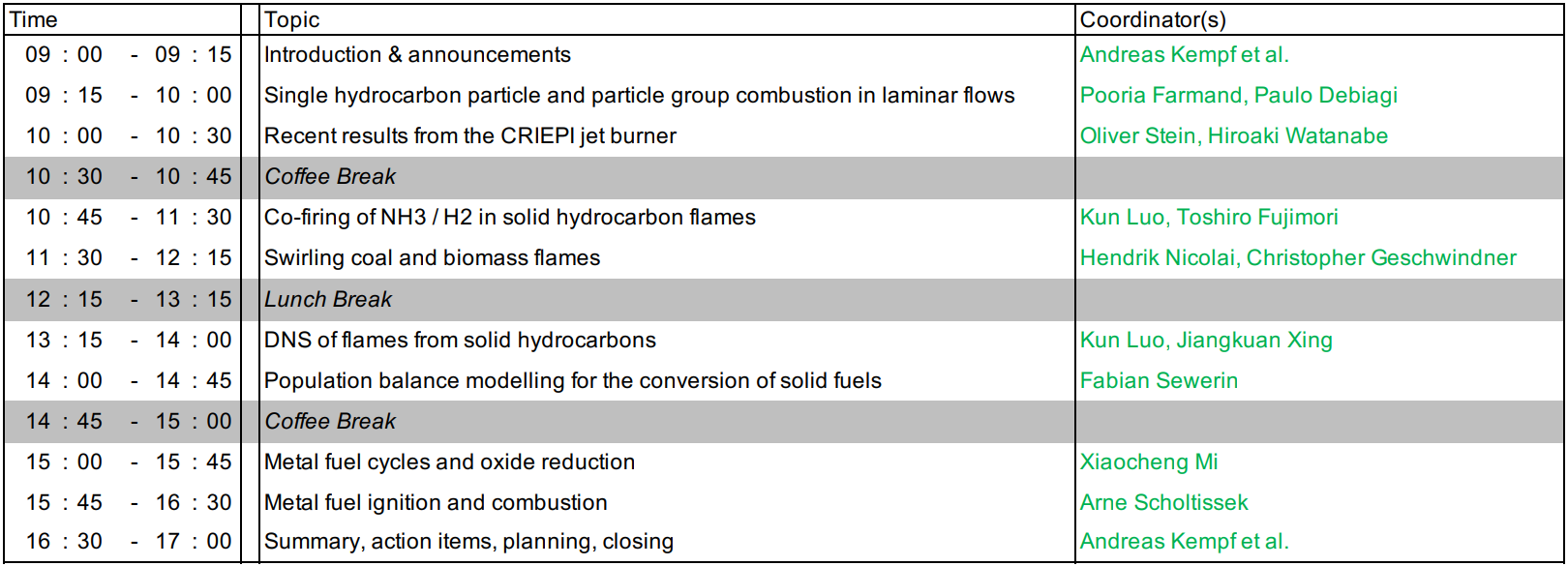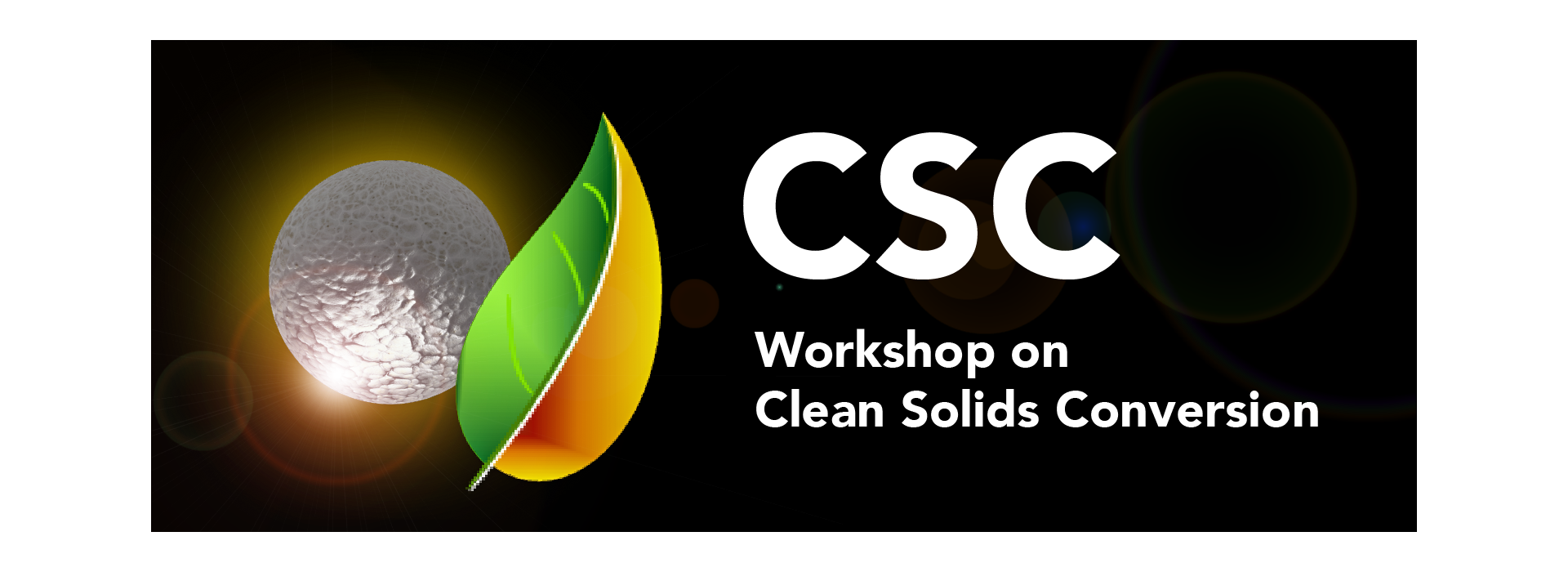Scope
Although solid fuels have been used as a source of heat for thousands of years by mankind, solid fuel conversion still remains a field with a considerable demand for research. Traditionally, solid fuel conversion has been based on coal for gasification and combustion applications. However, as stated in the Coal in Net Zero Transitions report by the International Energy Agency, a steep decline in coal emissions is essential to reach our climate goals. Recently biomass has attracted increased attention due to its CO2-neutral energy conversion potential. Even more recently, the use of solid metals as energy carriers in a circular energy economy has been proposed, which requires elemental research on metal oxidation and oxide reduction before this concept can be widely applied. Fundamental aspects like kinetics, evaporation, pyrolysis, char conversion, volatile combustion, radiation and particularly the interaction of these processes with turbulence occurring in solid fuel conversion systems are not yet fully understood, and a reliable and accurate prediction using computational methods is hardly possible. However, the development of better physical and computational models, the increase in computational power and advances in experimental techniques will allow to successfully design and study future industrial devices, providing a more efficient and cleaner way of converting solid fuels.
This workshop series targets the numerical and experimental aspects essential to future improvements of solid fuel conversion. Following the example of the workshop on Turbulent Non-Premixed Flames (TNF), this workshop focuses on the fundamental science and relies on experiments on the laboratory (and pilot) scale, where progress in modeling can be verified and validated against reliable experimental data. The acronym of this workshop was initially CBC which has been updated to CSC to reflect its present scientific scope. Therefore, all citations of this workshop should now be made to CSC.
4th Workshop
The 4th workshop was held as a satellite meeting prior to the 19th International Conference on Numerical Combustion (ICNC) in Kyoto, Japan on the 7th of May 2024.
The agenda of the workshop was as follows
Agenda of the 4th Workshop on Measurement and Simulation of Clean Solids Conversion (CSC)
May 7th 2024, prior to the 19th International Conference on Numerical Combustion, Kyoto, Japan

